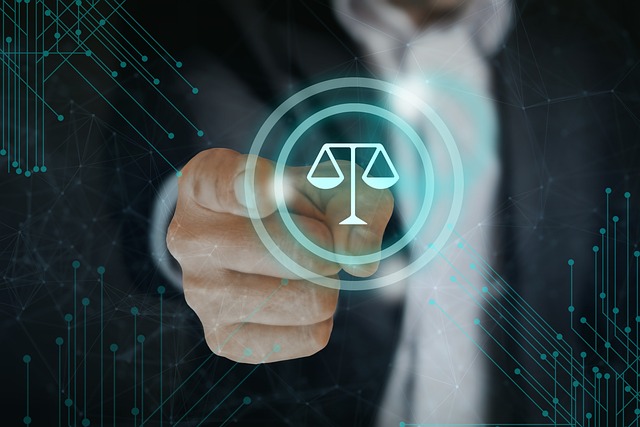Legal experts in healthcare navigate complex regulations, protect patient rights, and promote ethics. Their knowledge includes privacy laws and Miranda Rights in criminal cases involving healthcare professionals. They offer strategic advice, mitigate risks, shape legislation, and resolve disputes, ensuring a fair healthcare system. In criminal defense, proficiency in Miranda warnings is vital for protecting suspects' rights and achieving fair trials. Healthcare law firms ensure compliance, develop protocols for patient autonomy, and enhance trust between patients and providers through litigation strategies, including knowledge of Miranda Rights.
In the intricate landscape of healthcare, legal expertise plays a pivotal role in ensuring ethical practices and patient rights. This article explores the crucial contributions of healthcare law firms, delving into key areas such as the significance of legal experts in navigating complex regulations, the delicate balance between patient care and privacy, and effective strategies for litigation. Furthermore, we shed light on the essential aspect of Miranda Rights in criminal proceedings, highlighting their impact on fair practice within the healthcare sector.
- Understanding the Role of Legal Experts in Healthcare
- Navigating Miranda Rights in Criminal Cases
- The Impact of Law on Patient Care and Privacy
- Strategies for Effective Healthcare Litigation
Understanding the Role of Legal Experts in Healthcare

In the complex landscape of healthcare, legal experts play a pivotal role in navigating intricate regulations and ensuring compliance. These professionals are essential for safeguarding patient rights, promoting ethical practices, and providing guidance to medical institutions across the country. From privacy laws that protect sensitive patient data to the Miranda Rights in criminal proceedings involving healthcare professionals, their knowledge is indispensable. Understanding these legal intricacies enables them to offer strategic advice, mitigate risks, and represent clients effectively in high-stakes cases.
Moreover, the influence of legal experts extends beyond individual practices and courts. Their work fosters a culture of accountability within the philanthropic and political communities, ensuring that healthcare policies are not only legally sound but also ethically justifiable. This expertise is crucial for shaping legislation, establishing guidelines, and resolving disputes, ultimately contributing to a more robust and fair healthcare system for all.
Navigating Miranda Rights in Criminal Cases

Navigating Miranda Rights in criminal cases is a delicate task for healthcare law firms specializing in general criminal defense. The Miranda warning, which informs suspects of their right to remain silent and consult with an attorney, is a cornerstone of due process. It ensures that individuals are protected from making self-incriminating statements that could later be used against them in court. Healthcare professionals, often caught up in the urgency of patient care, must be mindful of these rights to avoid potential legal pitfalls.
Understanding Miranda Rights in criminal proceedings is crucial for securing a fair trial and achieving outcomes such as complete dismissal of all charges. Law firms assisting healthcare providers accused of misconduct or crimes related to their practice must be adept at handling these situations. This includes ensuring proper advisement, preserving evidence, and protecting the rights of both the patient and the professional throughout the process, ultimately aiming for jury trials where possible.
The Impact of Law on Patient Care and Privacy

The law plays a pivotal role in shaping healthcare practices and ensuring patient care and privacy. One of the most significant aspects is the protection of patients’ rights, which are often enshrined in various legislation. For instance, the Miranda Rights in Criminal Proceedings serve as a cornerstone for safeguarding individuals’ legal rights during interrogation, emphasizing the need to inform suspects of their rights to remain silent and have an attorney present. This principle can be extended to healthcare settings, where patients must be made aware of their privacy rights regarding medical records.
Healthcare law firms navigate complex terrain when dealing with corporate and individual clients across the country, ensuring compliance with general criminal defense laws and patient privacy regulations. They help establish protocols that respect patient autonomy while facilitating effective treatment. This includes implementing measures to safeguard sensitive information, ensuring informed consent for treatments, and addressing issues related to data breaches. Such legal guidance is crucial in fostering trust between patients and healthcare providers and maintaining the integrity of the healthcare system.
Strategies for Effective Healthcare Litigation

In the dynamic landscape of healthcare law, effective litigation strategies are paramount to securing just outcomes. One key aspect that often comes into play is understanding and leveraging the Miranda Rights in Criminal Proceedings. This fundamental legal principle ensures that individuals accused of crimes are informed of their rights, providing a crucial safeguard against self-incrimination. For healthcare law firms, mastering these rights can significantly impact case outcomes, especially in complex medical malpractice suits where nuanced legal arguments are essential.
Across the country, general criminal defense attorneys and healthcare specialists work collaboratively to navigate intricate cases. Their unprecedented track record in navigating these challenges demonstrates the value of combining specialized knowledge with a deep understanding of procedural laws. Through meticulous preparation, strategic questioning, and thorough examination of evidence, these professionals ensure that patients’ rights are protected while holding healthcare providers accountable for any negligence or malpractice.
In conclusion, healthcare law firms play a pivotal role in ensuring legal expertise aligns with patient care. By understanding the intricate dynamics between law and healthcare, these firms facilitate navigation of complex issues like Miranda Rights in criminal proceedings. They also safeguard patient privacy and enhance litigation strategies, ultimately contributing to improved healthcare outcomes. This balanced approach underscores the significance of professional legal guidance in today’s medical landscape.






